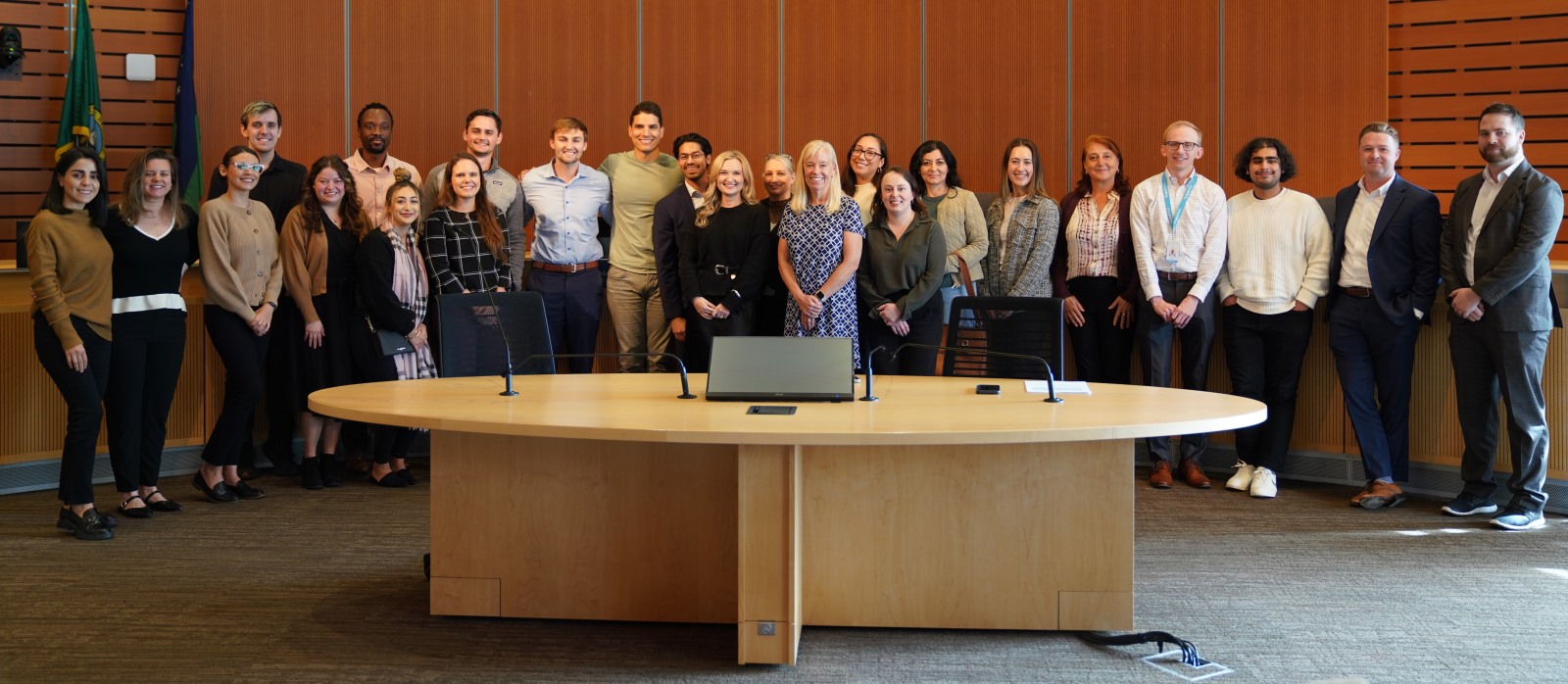Deputy Mayor Malakoutian, Rep. Salahuddin brief New Executives on budgets & housing
A full room of new executives joined us to meet the people who help set the rules of the road in our region. Bellevue Deputy Mayor Mo Malakoutian and State Representative Osman Salahuddin, who represents the 48th Legislative District, compared notes on city and state roles, walked through how budgets really work, and shared straight-talk on housing and how the business community can plug in. It was part civics lesson, part playbook, and all about practical engagement.
Both leaders traced their path into public service, grounded in community ties and a desire to widen their impact. Malakoutian spoke about moving from nonprofit volunteerism to the Planning Commission and then the Council. Salahuddin, raised in Redmond and active in student leadership at the University of Washington, described the Eastside as diverse and growing, and he kept the north star simple.
“The state is here to serve you,” — Rep. Osman Salahuddin, 48th Legislative District
From left to right: Deputy Mayor Mo Malakoutian, Bellevue Chamber's Jodie Alberts, and Rep. Osman Salahuddin.
From there, the conversation got concrete
Salahuddin outlined the Legislature’s rhythms and responsibilities, including the operating, transportation, and capital budgets, along with committee work that turns ideas into law. Malakoutian described the Council’s job of setting long-range policy, land use, and priorities with a clear throughline of accountability.
“We basically are seven people, seven council members, and with the help of the staff and all of our stakeholders and partner, we set vision for futures of Bellevue,”
— Mo Malakoutian, Bellevue City Councilmember & Deputy Mayor
He emphasized that the city must balance its budget and regularly check whether programs deliver results.
“Bellevue is very fiscally responsible. We are treating it as our own personal budget,”
Budget realities were top of mind
Salahuddin described a prior-year shortfall of about 16 billion dollars and revenue actions totaling roughly 9 billion dollars, along with targeted savings such as ending a COVID-era warehouse lease that saved 2 million dollars. He also noted that he and his Eastside House colleagues opposed the B&O increase, citing the pressure it places on thin-margin firms and his own family’s small business experience.
Housing drew equal attention, and the focus stayed on tools that actually add supply. The speakers covered zoning capacity, partnerships, and permitting improvements, as well as new state direction on middle housing. Malakoutian highlighted the city’s practice of pairing policy with speed for the projects that matter most.
“We waive all of the fees, and we expedite our permitting process for affordable housing,” —Mo Malakoutian
At the state level, Salahuddin pointed to efforts that reduce barriers to homeownership-oriented supply and make condo construction more viable through liability reform. The common thread was simple enough to write on a sticky note: Add units, remove friction, keep affordability in view.
If you came for a checklist on advocacy, you left with something better
Both leaders invited executives to show up early, bring data, and build working relationships before the hard votes arrive. Malakoutian’s advice started with an open door.
“Just the first thing is have that conversation ... come to us!” — Mo Malakoutian
Salahuddin encouraged newer voices to step forward and to treat city and state offices as resources, whether they are navigating careers, education, or policy questions.
By the end, the story that emerged was one of disciplined budgeting, pragmatic housing solutions, and an open invitation to engage.


